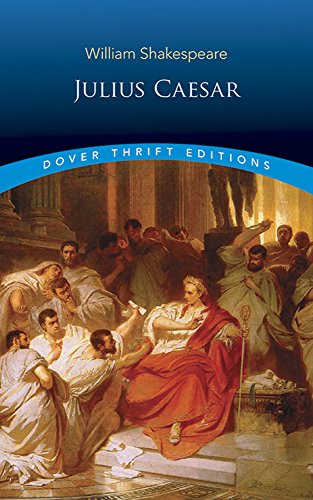William Shakespeare’s Julius Caesar (affiliate link) fascinated me to no end. Everybody knows the story of how Caesar died and what the Ides of March is, but I had no idea Caesar dies in the middle of the book.
I wondered, “What is in the rest of the book?” It turns out, plenty. Shakespeare is brilliant, as always, to pace the story in such a way that the climax happens in the middle of the book. Then, he can clearly show the outcome and all the consequences of the conspirators’ actions.
Another observation: it took me about 50 pages before I got used to Shakespeare’s language (out of 78 total). As such, reading this play felt like a struggle, but I persevered. Now that my brain found that Shakespeare realm, I might want to read a few more of his plays.
The footnotes in the Dover Thrift Edition, which I own, came in handy. We all need help understanding William Shakespeare and just glancing at the bottom of the page was a lot easier than having to turn to Google.
By now, I think you are getting the picture of how I can finish one book in one week. I stick to short books like Steinbeck’s novellas or a Shakespearean play, which was, in this case, 78 pages. Easy.
This is where reading Atomic Habits gave me a powerful tip: keep new habits short. Don’t overwhelm yourself with 30 minutes at the gym. Just go for 5 minutes. When it comes to reading, don’t start reading 400-page books. Just stick to books under 200 pages. As you flex that reading muscle, you can increase the size of your books without even realizing. It will not be a struggle.
